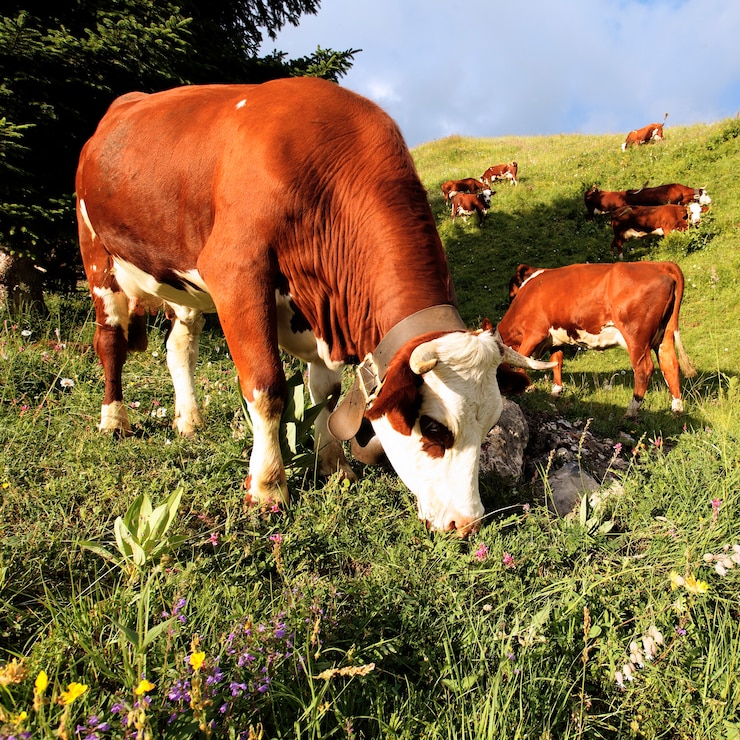South Africa is known for its high-quality meat products, and in order to maintain this reputation and ensure the safety of consumers, there are specific requirements that farmers must meet when registering to supply the meat export market. These requirements are designed to ensure that animals are raised in a healthy and sustainable manner, and that the entire production process adheres to strict guidelines.
- Animals need to be individually and permanently identified at least 3 months before slaughter. This identification process helps in tracking the animal’s origin and ensures traceability throughout the supply chain.
- Animals must be of South African origin. This requirement ensures that only locally produced animals are eligible for export, guaranteeing that they meet the country’s standards and regulations.
- Farmers must supply a detailed plan of their farm, buildings, and infrastructure. This information allows authorities to assess the suitability of the farm for raising livestock and ensures that proper facilities are in place to support healthy animal growth.
- Farmers are prohibited from using hormones, steroids, growth stimulants, animal by-products, or feed stimulants. This requirement promotes the use of natural farming methods and prevents the introduction of potentially harmful substances into the meat production process.
- Only natural food may supplement veld. Veld refers to natural grazing land. This requirement ensures that animals are primarily fed with natural vegetation and minimizes the use of processed or artificial feeds.
- Veld must be clearly marked, identified, rotated, and rested for one season before being used. This practice helps maintain the health and fertility of the land, allowing for sustainable grazing practices and preventing overgrazing.
- Feed must be stored in a dry area away from chemicals and fertilizers and kept safe from vermin, mold, and dust. Proper storage conditions ensure that the feed remains fresh and uncontaminated, reducing the risk of illness or contamination.
- Feed and water troughs must be clean and well maintained. Clean and well-maintained feeding and watering equipment helps prevent the spread of diseases and ensures that animals have access to clean and fresh water and food.
- Stock Registers must contain detailed information including dates of arrival at the farm, origin, identification numbers, any treatment and vaccination dates, number of deaths with reasons, and the dates of dispatch to the abattoir. This information helps in monitoring and tracking the health and history of each animal, ensuring transparency and accountability.
- Disease Control Measures: Farmers must promptly notify the State Vet in the event of a disease outbreak. Treated animals must be kept in a separate camp to prevent the spread of the disease. Injections should only be administered in the neck, and withdrawal periods for any therapeutic remedies used must be strictly observed. Additionally, the head of any deceased animal must be sent to the nearest vet for examination to check for diseases such as Mad Cow Disease.
- Dipping areas must be sealed when not in use. This prevents contamination of water sources and ensures the effectiveness of disease control measures.
- Farmers are required to record all chemicals used on their farms. Keeping track of the chemicals used helps in monitoring and managing potential environmental impacts and ensures the safety of the animals and consumers.
- All chemicals used must be environmentally friendly. This requirement promotes the use of safe and sustainable agricultural practices, minimizing the negative impact on the environment.
- Export abattoirs must conduct soil, water, and feed analysis for heavy metals prior to registration. This analysis helps identify potential contaminants and ensures that the meat produced meets safety standards.
- Transport must be well-coordinated, and trucks should never be overloaded. Proper transportation practices minimize stress on the animals and ensure their welfare during transit.
- Cattle branding must be completed three weeks before slaughter. Branding helps identify animals and prevents mix-ups during transportation and processing.
- Dehorning of cattle must be done before weaning. This practice is aimed at ensuring the safety of both the animals and handlers, as horned cattle can pose a risk of injury.
- Animals must be subjected to minimum stress during the three-week period before slaughter. Reducing stress levels in animals helps maintain meat quality and ensures humane treatment throughout the production process.
By adhering to these requirements, South African farmers can contribute to the country’s reputation for high-quality meat exports. These guidelines prioritize animal welfare, sustainability, and food safety, ensuring that consumers can have confidence in the meat products they purchase from South Africa.
Join 'Farmers Mag' WhatsApp Channel
Get the latest Farming news and tips delivered straight to your WhatsApp
CLICK HERE TO JOIN






